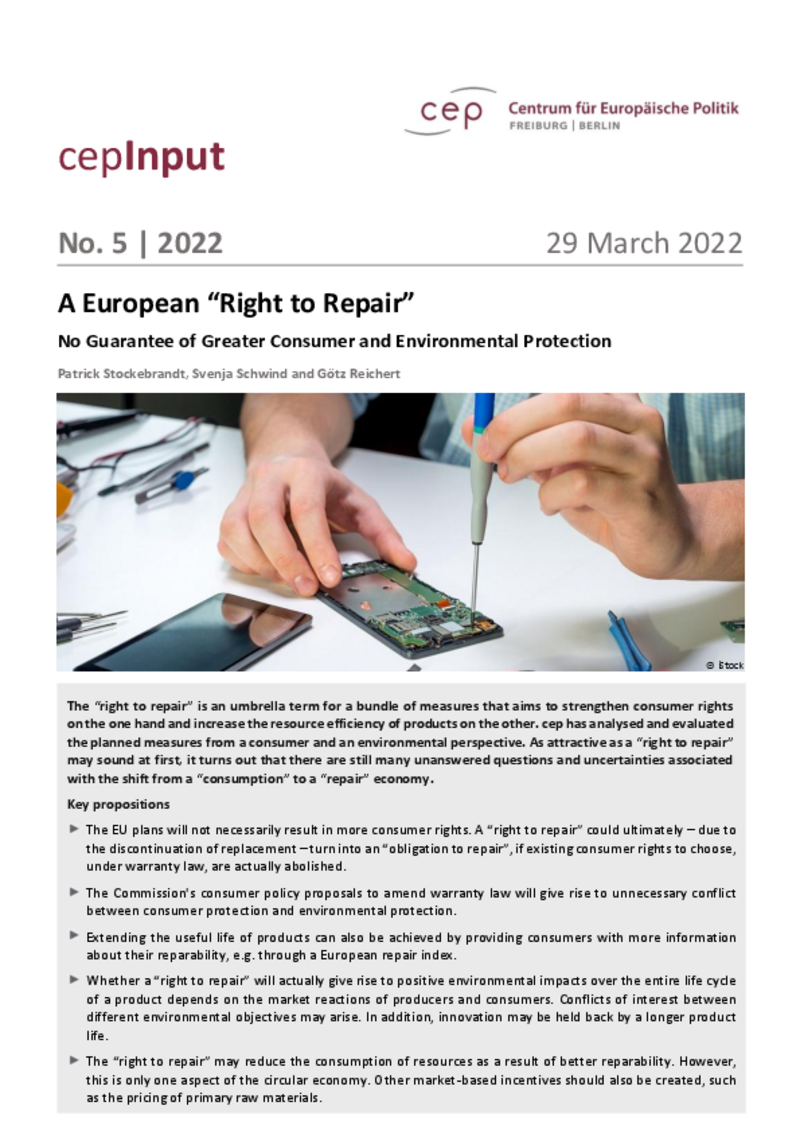
Consumer & Health
European Right to Repair (cepInput)
cepInput
“The EU plans do not necessarily lead to more consumer rights,” says cep consumer rights expert Patrick Stockebrandt, who analysed the plan with cep environmental experts Götz Reichert and Svenja Schwind. A “right to” could become an “obligation to” repair if certain warranty rights were abolished. This could lead to acceptance problems, whereby consumer and environmental protection would unnecessarily come into conflict. Stockebrandt pleads for better consumer information. “The existing approaches of a warranty statement or a European repair index are more likely to enforce consumer rights. They promote competition and improve the information situation for consumers,” says the cep jurist.
“Whether better reparability is desirable from an environmental perspective varies depending on the product,” emphasises Reichert. “For example, it may be more environmentally advantageous to replace an old product with a new, energy-efficient one.”
According to Svenja Schwind, a right to repair “is no guarantee to automatically lead to positive environmental impacts over the life cycle of a product.” This depends on market reactions of producers and consumers. The scientists fear that innovations may be held back by a longer product life.
It was originally scheduled for March 2022, but has been postponed many times. It will be published on Wednesday, 22 March 2023.
Download PDF
| A European Right to Repair (cepInput) (publ. 03.29.2022) | 487 KB | Download | |
 | |||




